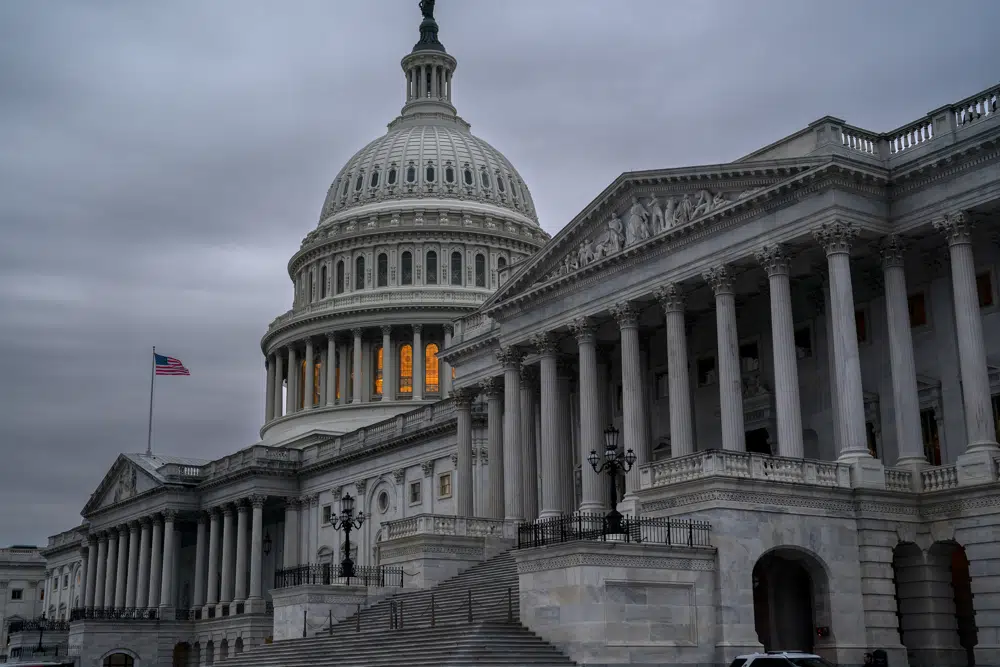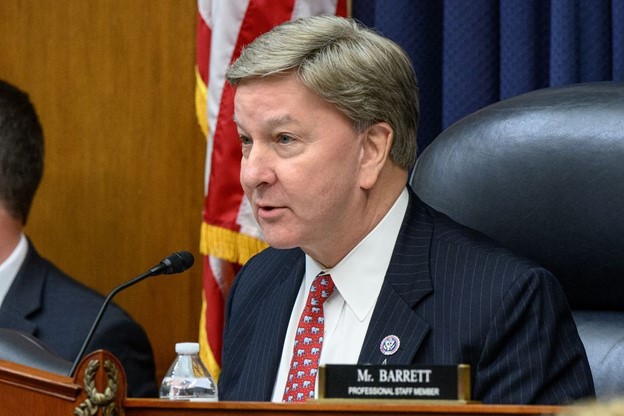Gov. Kay Ivey announces new first-class Pre-K classrooms in 30 counties

Alabama Governor Kay Ivey (R) and the Alabama Department of Early Childhood Education (ADECE) on Tuesday announced the expansion of the Alabama First Class Pre-K program. The department will initially add 69 classrooms in 30 counties this fall, serving an additional 1,200 children. “Ensuring our youngest learners have a strong start to their educational journeys is one of my top priorities for my second term. Alabama continues to set the nationwide standard for success with the Alabama First Class Pre-K program,” said Gov. Ivey. “I am excited to see additional classrooms being awarded to areas of the state with low access and high rates of poverty. Providing all children, no matter their zip code, with a solid foundation in education is critical to the future success of our state.” Last month, the National Institute for Early Education Research (NIEER) ranked Alabama First Class Pre-K as the nation’s highest-quality state pre-kindergarten program for the 17th consecutive year. Alabama leads the country while expanding program access to Alabama’s 4-year-olds. Dr. Jan Hume is the Acting Secretary of the Alabama Department of Early Childhood Education. “Through the leadership of Governor Ivey and the Alabama Legislature, Alabama’s state pre-k program continues to move toward the goal of serving 70% of Alabama’s population of 4-year-old children,” said Dr. Hume. “Since the program’s creation in 2000, we continue to prioritize age-appropriate, impactful early learning and development experiences for children and their families.” Supporters claim that the state’s investment in high-quality pre-kindergarten will lead to substantial positive outcomes for children who participate in the program. The Department of Early Childhood Education claims that research on the program’s long-term impacts shows that students who participated in First Class Pre-K are more likely to succeed throughout their school careers than their peers who did not participate. The Legislature hopes that greater access to pre-K classrooms and changes to primary education required by the Alabama Literacy Act and the Alabama Numeracy Act will eventually improve academic performance. According to the latest numbers, in 2023, 25% of Alabama third graders read below third-grade level. That is up from 22% the year before. The Public Affairs Research Council of Alabama noted in a recent report that since the Literacy Act was passed in 2019, the State Legislature has provided major increases in funding for reading instruction and services, including the Alabama Reading Initiative (ARI) and school-based reading coaches. Teachers from Kindergarten to third grade across the state have received intensive professional development designed to improve the teaching of reading, an instructional approach based on what has been hailed as the science of reading. The third grade is important because beginning next year, the state will prevent children who read below a third-grade level from advancing to the fourth grade with their peers. 22% of second graders, most of whom will start third grade in August, cannot read at a second-grade level. These 11,622 children have less than 12 months to catch up to their peers or may not advance to fourth grade next year. Children who do not read well by the end of the third grade are four times more likely to never graduate from high school. Governor Ivey signed the 2024 Education Trust Fund budget, which included an almost $12 million increase for the Office of School Readiness that administers First Class Pre-K. The department will continue to ensure pay parity for all First Class Pre-K teachers with the same pay raise as K-12 public school teachers in the upcoming school year. The ADECE expects to fund additional classrooms in areas of the state with wait lists and other identified needs. This is the largest education budget in the history of the state of Alabama. The classrooms included in this first round are part of Governor Ivey’s specific education initiatives that address turnaround schools and high-needs areas and reduce wait lists for pre-k programs. To connect with the author of this story or to comment, email brandonmreporter@gmail.com.
Special session to be held next month

The U.S. Supreme Court surprised many court observers earlier this month when it ruled that Alabama’s congressional redistricting passed in 2021 violated the Voting Rights Act of 1965. The special session to address the redistricting will be next month. 2024 is a presidential election, and the Alabama major party primaries will be early in that cycle on March 5. This means that campaign qualifying with the major parties will begin in November. The three-judge panel of the Eleventh Circuit Court of Appeals in Atlanta has ordered the state to present a redistricting plan acceptable to the court, or the court will appoint a special master to do it. State Representative Mack Butler (R-Rainbow City) told Alabama Today that he heard the special session would be on July 17. Butler said the special session would narrowly focus on passing a new congressional redistricting plan. Rep. Ron Bolton (R-Northport) addressed BamaCarry of Tuscaloosa County on Monday night. “The special session will be on July 17,” Bolton said. “It will be an agreed-upon bill.” Bolton said that the three-judge panel in Atlanta had set the deadline for the state to submit a compliant redistricting plan as July 21. Rep. Ed Oliver (R-Dadeville) told Alabama Today that the special session should include legislation on the ballot harvesting ban bill that failed in the last session. “That’s the Secretary of State’s bill,” Oliver said. “With two contested congressional races, we need that to ensure that the election is secure.” The federal court ruled that since Alabama is nearly 28% Black, the state should have two congressional districts that are either majority Black or are close to it. Currently, the Seventh Congressional District, comprised of a 55% Black voting population, is Alabama’s only majority-minority district. The other six congressional districts are all less than 30% Black and are all represented by White Republican men. The Seventh Congressional District is represented by Rep. Terri Sewell – the only Black person in the congressional delegation and the only Democrat. Since all seven congressional districts have to be roughly equivalent in size, changing the districts so that two have roughly 48% or more minority voters will mean that all seven districts will change in redistricting. Whereas the Legislature before sought to keep all seven of the incumbents in their districts, that won’t be a consideration in the next redistricting plan, so it is likely that some incumbents could be redistricted into the same districts. Alabama Republican Party Chairman John Wahl has said the Alabama GOP will contest all seven congressional districts in 2024 – including Rep. Sewell’s. Rep. Oliver said that in that hyper-competitive environment, it is important to have as secure an election as possible, and that is why the call should include the ban on ballot harvesting. House Bill 209 (HB209) passed the House of Representatives in the recent regular session, but the Alabama Senate failed to address it. Ballot harvesting involves paying political operatives to collect absentee ballots. “Over the last decade, there have been multiple convictions for absentee ballot fraud across the state of Alabama,” wrote Secretary of State Wes Allen. “As a Probate Judge, a legislator, and now as Secretary of State, I am committed to eliminating election fraud in our state. HB209, sponsored by Rep. Jamie Kiel, makes incredible strides in protecting the rights of Alabama voters to cast their own votes without undue influence. Currently, it is legal for groups operating as non-profits to offer payments in exchange for absentee ballot applications to Alabama registered voters. HB209 would end that. Today, it is legal for out-of-state organizations to mail pre-filled absentee ballot applications to unsuspecting voters across the state, some of whom have moved or have no intention of voting absentee. HB209 would prohibit this practice.” “HB209 would make it illegal to pay or to be paid by a third party to collect absentee ballot applications or absentee ballots from Alabama voters,” Allen continued. “Furthermore, it would eliminate the ability of organizations to sow the seeds of chaos and confusion by sending pre-filled absentee applications into our state. Our elections are the foundation of our constitutional republic, and nobody should be paid for their absentee application or their ballot. Ballot harvesting should not be a job description.” Democrats, who opposed the bill, called it “voter suppression” and said that it would make it illegal for neighbors to help neighbors fill out their absentee ballot. HB209, as amended in the House, would allow family members to help family members prepare their absentee ballot. “House Bill 209 states that the Secretary of State, probate judges, absentee ballot election managers or their designee,” Rep. Adline Clarke (D-Mobile) said. “Now, it is absolutely unrealistic to believe that these individuals can take up the slack for the hundreds of volunteers that assist voters in every election. It is not humanly possible and will cause a huge decrease in the number of voters who vote absentee. That is a sad thought.” Whether or not the ballot harvesting bill is included in the call for the special session is solely the purview of Gov. Kay Ivey. “I have a wish list, I am sure you have a wish list, but that is up to the Governor,” Sen. Dan Roberts (R-Mountain Brook) told Alabama Today. Roberts warned that including Allen’s legislation in the special session would be “divisive.” Roberts was also skeptical of rumors that a proposed constitutional amendment addressing gambling could be in the call. “I had not heard that,” Rep. Butler said when asked about the gambling bill rumor. “I think it is going to be a simple one-issue special session.” “In all of the communications that I have had with Speaker (Nathaniel) Ledbetter, he has not given me any indication to think that is being considered,” Oliver said of the gambling rumor. Butler said that with two highly contested congressional races on the ballot in 2024, “We are going to need every Republican to turn out.” To connect with the author of this story or to comment, email brandonmreporter@gmail.com.
Democrats may change Senate rules over Tommy Tuberville’s hold on promotions

The Hill’s Alexander Bolton reported on Tuesday that Senate Democrats may look at rules changes to break through the blockade U.S. Senator Tommy Tuberville has put in place against more than 200 military promotions to protest the Pentagon’s abortion policy. Democrats accuse Tuberville of abusing the Senate rules by keeping his hold on Joe Biden’s military promotions in place since February. “We need to talk about changing rules that Republicans have learned to exploit. We can’t continue in a world where one senator puts our entire national defense at risk because he doesn’t like one policy followed by the Department of Defense,” said Sen. Elizabeth Warren (D-Massachusetts), a member of the Senate Armed Services Committee. Warren says that she has repeatedly asked for unanimous consent to advance Biden’s nonpolitical military promotions only to be blocked by Tuberville. “Sen. Tuberville’s hold is just another indication of the madness that seems to have seized extremists in the Republican Party,” she said. “I don’t think one person should be able to hold up the promotions and lives of everybody in the military or any other part of government,” said Sen. Debbie Stabenow (D-Michigan), the chairwoman of the Senate Democratic Policy and Communications Committee. “The Senator from Alabama’s actions are not just the usual back and forth in Washington. His holds pose a grave threat to our national security and our military readiness,” Warren said in a floor speech on June 1. “They actively hurt our ability to respond quickly to threats worldwide. That is not my conclusion. That is the conclusion of the Secretary of Defense.” President Joe Biden brought up Sen. Tuberville’s hold on military promotions without mentioning the Senator by name in comments at an event on Monday. “Because the military said if you’re in the military and you’re having a troubled pregnancy, and you’re in a state where you’re not allowed to see the doctor performing any remedial operation on you, then you can get paid – you can have leave to go to where you can do that,” Biden said. “I know I don’t look like I’ve been around, but I’ve been around a long time. There’s so many things of consequence that we can solve. And the vast majority of people, all the data shows, support the positions we’re generically taken.” On Thursday, Tuberville said that he is not backing down. “This is the ninth time that Democrats have come to the floor to try to break my hold on the Department of Defense’s nominees,” said Tuberville. “This is the ninth time that I’ve come to the floor to keep my word. Since the last time we did this, nothing has changed. And so, my hold will remain in place.” Tuberville continued, “Yesterday, the White House Press Secretary was asked why they haven’t reached out to me at all. She said, “I do not know when the last time is they talked to the senator.” I’ll tell you when the last time was — never. The White House has not reached out once in four months. No one has contacted me. There has not been one conversation, no path forward. I have spoken to Secretary (Lloyd) Austin, outside of Armed Services hearings, exactly once in the last two years. That was a 10-minute phone call — three months ago. He made absolutely no effort to find a compromise in our situation.” “Many of the claims made about me have been completely false. Many of them,” said Tuberville. “This is no way to negotiate with a colleague — especially in this body, the United States Senate. Frankly, this kind of behavior from the Democrats just steels my resolve. The more false claims the Democrats make about me, the more inclined I am to keep the holds in place.” “But I would note that just yesterday, a news story reported correctly that these military positions are being fulfilled by acting officials,” stated Tuberville. “These jobs are being done right now. They’re not empty. Four months into this situation that is obvious that people are doing the job. It is not affecting readiness. Anyone who says otherwise is wrong.” “I will keep my hold until the Pentagon follows the law [or] Congress changes the law,” vowed Tuberville. “That’s the way we do it here in the Senate. A ‘show vote’ in committee is not good enough. We can do that all we want. It’s not going to make any difference. An amendment that gets stripped out on the floor by Senator [Chuck] Schumer is not good enough. What I have said from the beginning: either follow the law or change it. Follow the law that we have made in this body, or change the law.” It is far from certain that Democrats have the votes to change the Senate rules, as any proposed rule change on this would dramatically decrease the power of every individual senator – of both parties. This slowdown of routine Senate business could be getting worse. Sen. JD Vance (R-Ohio) is following Tuberville’s example when he declared last week that he will put a hold on all nominees to the Justice Department over the prosecution of former President Donald Trump. “Donald Trump is merely the latest victim of a Department of Justice that cares more about politics than law enforcement,” Vance said in a statement. “Merrick Garland’s department harasses Christians for pro-life advocacy but allows hardened criminals to walk our streets unpunished. This must stop, and I will do everything in my ability to ensure it does. Starting today, I will hold all Department of Justice nominations. If Merrick Garland wants to use these officials to harass Joe Biden’s political opponents, we will grind his department to a halt.” To connect with the author of this story or to comment, email brandonmreporter@gmail.com.
Daniel Sutter: Economics and the transfer portal

The transfer portal is changing college sports, particularly in combination with Name, Image, and Licensing (NIL) deals. The portal also illustrates the role of philosophies of life and work in our decisions. College athletes (and students) have long transferred. Previously players transferring from one Division I (or FBS) program to another had to sit out a year. Consequently, player mobility has increased significantly. As one example, quarterback J.T. Daniels started at USC, transferred to Georgia for two seasons, played for West Virginia in 2022, and will play for Rice this year. Transfer restrictions were controversial since coaches did not have to sit out when taking a new job. And players could not freely transfer after their coach left or was fired, even though new coaches might seek to make inherited players leave. Many fans believe the transfer portal is ruining college sports, but that is not today’s subject. Let’s consider the transfer decision instead. According to ESPN, 8,700 football players total, and nearly 3,300 from FBS, entered the portal between August 2022 and May 1, or almost 30 percent of FBS scholarship players. Thousands of transfers undoubtedly involve numerous factors, including being beaten out by another player, coaching changes, and family considerations. The potential for NIL money adds another rationale. Some starters transfer, like Jalen Hurts, after starting two national championship games for Alabama. But consider the players who have not yet had success. Should non-starters transfer to find a team where they fit better or stay put, learn the system well, earn the coaches’ trust, and work to gain playing time? The appropriate course of action depends on how to achieve personal success in football. Is hard work sufficient to take you as far as possible, or do you need a good fit? If you believe the former, then stay and work hard. If the latter and your current fit is not great, transferring is wise. The hard work versus fit question arises in many life endeavors. Can any student succeed at any college? Or do class size, access to professors, and campus environment matter? Does a successful marriage require a perfect match or partners willing to work very hard? Should you work hard to impress your boss or find a boss who values your talents and contributions? The best course of action depends largely on how you think the world works. Many simple words to live by can be seen as statements about how the world works, which then guide behavior. “Hard work pays off,” “honesty is the best policy,” “the customer is always right,” or “live by the Golden Rule” all recommend courses of action based on the nature of the world. Our views matter because we would be hard-pressed to definitively prove their validity. Daily life does not unambiguously reveal whether honesty is the best policy or if nice guys finish last. Before hard work yields success, our belief keeps us going. Economists typically presume that people can easily determine their best course of action. In part, this is because we begin with consumer choice. Consumers can easily tell if they prefer apples to oranges or chicken to steak. Economists then explain behavior with incentives: people work hard when they get paid well. Yet this misses some important dynamics. Economists struggle to make sense of the work ethic, which correlates with prosperity. The work ethic makes sense as a view about hard work paying off. Holding this belief leads people to work hard. Most of us pick up many of our views of how the world works from others, including parents, siblings, teachers, and grandparents. Such transmission ensures the persistence of widely held views. But maintaining the work ethic will be difficult when few people believe that hard work gets rewarded. Few athletes compete collegiately without first practicing and training for countless hours. The transfer portal will not degrade athletes’ work habits. But the transfer decision illustrates how our beliefs about the world affect our behavior almost as much as incentives. Daniel Sutter is the Charles G. Koch Professor of Economics with the Manuel H. Johnson Center for Political Economy at Troy University and host of Econversations on TrojanVision. The opinions expressed in this column are the author’s and do not necessarily reflect the views of Troy University.
Donald Trump faces questions about whether he’ll drag down the Republican Party after his indictments

Donald Trump’s grip on the Republican faithful was evident from the moment he left the federal courthouse in Miami last week. Fresh off becoming the first former president to face criminal charges levied by the government he once oversaw, Trump’s motorcade moved through a crowd of hundreds of mostly adoring fans. He met more supporters at a Cuban restaurant in Little Havana, a Miami neighborhood that, like much of south Florida, has swung toward Republicans in recent years. A federal indictment on charges of mishandling the nation’s most sensitive national security secrets would doom any other White House hopeful. But Trump’s reception in Miami — and the more than $7 million he raised after the indictment — was a reminder of the central tension coursing through the Republican Party as the 2024 presidential primary gets underway. For now, no one comes close to Trump in his command of the voters who will decide the GOP’s nominee next year. But Trump’s path beyond the primary is far more perilous as he faces significant and growing questions about his ability to appeal to a broader, more moderate set of voters in a possible general election matchup against President Joe Biden. If Trump fails, he risks not just losing the White House contest but also dragging down other Republican candidates on the ballot as the party aims to retake the U.S. Senate and keep the House. Former Maryland Gov. Larry Hogan is among those warning Republicans that what is popular in a primary may not carry the general election. The frequent Trump critic backed a moderate Republican to succeed him in last year’s governor’s race. But Trump’s preferred candidate carried the primary and was soundly defeated in the general election, a result that played out in key races across the country. “We had three losing cycles in a row,” Hogan said. “It’s pretty hard to lose the White House, but we did it. It’s pretty hard to lose the House, the Senate, and the White House, but we did that also. And in the last election when we should have won the Senate back, picked up governor seats, and picked up 50 seats in the House … Republicans did not make gains really.” Trump is not the only GOP contender facing such concerns. Florida Gov. Ron DeSantis’ national electability has been called into question after he signed into law a state ban on abortions performed after six weeks, delighting conservatives but leaving him as an outlier among broader voters. While many Americans back some restrictions on abortion, especially after the first trimester, many do not agree with the most extreme measures pushed in Republican-led states such as Florida, according to polling that also showed most Americans support a federal law allowing access to abortion nationwide. DeSantis also alienated some Republicans when he appeared to dismiss Russia’s brutal invasion of Ukraine as a “territorial dispute,” comments he later had to walk back. No one in the race, however, carries the same level of baggage as Trump, particularly after the latest indictment, which follows charges in New York City that he paid hush money to porn actor Stormy Daniels to cover up an affair. He’s unlikely to attract new support after the allegations in Florida, which center on allegations that he took and refused to return boxes of classified documents, including some that could put military members and other sources at risk if disclosed. The hand-wringing over the GOP’s future began well before Trump’s latest indictment. In announcing her presidential campaign in February, former South Carolina Gov. Nikki Haley, who was Trump’s ambassador to the United Nations, was blunt in addressing the party’s general election challenge. “We’ve lost the popular vote in seven of the last eight presidential elections,” she said. “Our cause is right, but we have failed to win the confidence of a majority of Americans.” Since Trump’s federal indictment in Miami, some of his rivals have begun to test how far they can go in criticizing him, positioning themselves in a way that may be helpful in a general election but also tempering their remarks by blasting the Department of Justice for bringing charges. While Trump’s rivals may not be ready to fully take him on, the party establishment is increasingly active in trying to block his acolytes from being nominated in down ballot races or encouraging hopefuls to change the subject from its losing messages of the past. The Republican National Committee, for example, conducted a review of the GOP’s recent performance. A draft report, which did not mention Trump by name, concluded that the party needs to move beyond “relitigating previous elections,” an apparent allusion to the incessant but debunked claims he won the 2020 presidential contest. The National Republican Senatorial Committee, the campaign arm of the Senate GOP, also has said it’s shifting tactics after opting to sit out last year’s primary elections and let voters decide the nominees. After failing to retake Senate control, the organization now says it will play in primaries if needed, providing money and other resources to candidates it believes have the best chance to win a general election. The organization already got news it hoped for when Doug Mastriano, a far-right Pennsylvania lawmaker who was endorsed by Trump last year and lost badly to the Democratic governor candidate, opted not to run for the Senate in 2024. Republicans are hopeful that former hedge fund CEO David McCormick, who lost last year’s primary to another Trump-backed candidate, will run again and take on Democratic Sen. Bob Casey. Trump, who has falsely called the charges against him a political prosecution, insists that he had redefined the GOP, saying earlier this year that “the old Republican Party is gone, and it’s never coming back.” The former president and his supporters point to his 2016 victory as evidence of his ability to win, noting he won Ohio and Florida when the GOP nominees in 2012 and 2008 could not and was the first Republican presidential candidate to win Michigan, Wisconsin, and Pennsylvania in decades. “We forever revolutionized the electoral map for Republicans,” Trump
DNC members express alarm over Alabama Democratic Party changes

Members of the Democratic National Committee said Friday that they are concerned about the operations of the Alabama Democratic Party and the elimination of several caucuses intended to ensure a diversity of voices in party affairs. The comments at a meeting of the Democratic National Convention’s Rules and Bylaws Committee come amid an ongoing feud over state party leadership and the possibility that national officials might again intervene in the state party as they did four years ago. The Democratic National Committee in 2019 had directed the Alabama Democratic Party to update bylaws to provide representation of more minorities, not just African Americans, in party affairs. That led to the creation of minority caucuses to ensure representation of young voters, LTBTQ community members, and others. But the state party in May abolished some of those caucuses with proponents arguing they were unneeded. “We’re equally alarmed by the bylaws and the operational allegations which seem to prevent the full participation of members, if true,” said Minyon Moore, co-chair of the DNC’s Rules and Bylaws Committee. Yvette Lewis, a member of the Democratic National Convention’s Rules and Bylaws Committee who urged the 2019 changes, said she had a “broken heart” over the recent actions in Alabama because it is “as if we did nothing.” “Diversity and expanding the party works,” Lewis said. She said there is opportunity for Democrats in Alabama after the U.S. Supreme Court affirmed a lower-court ruling requiring the state to draw new congressional districts and create a second district where Black voters comprise a significant portion of the electorate. “We can break that stronghold in the South. … There are people down there that so share our values, that so much want to be a part of the Democratic Party. We owe it to them,” Lewis said. Randy Kelley, the chair of the Alabama Democratic Party, asserted that the new bylaws did not cut representation. He argued youth and LGBTQ voters in the state are proportionately represented. “No one lost any representation,” Kelley said. “We want to grow the party.” He said if the DNC attempts to intervene in Alabama that they are prepared to go to the hearings and “plead our case.” Republished with the permission of The Associated Press.
Mike Rogers disappointed in ‘accountability and transparency’ regarding Afghanistan withdrawal

Last week Congressman Mike Rogers (R-AL03), the Chairman of the House Armed Services Committee, sent a letter to Secretary of Defense Lloyd Austin expressing his disappointment in the lack of accountability and transparency from the Department of Defense in the classified After Action Review (AAR) concerning the Biden administration’s withdrawal from Afghanistan. In the letter, Chairman Rogers wrote, “I have written to you separately in a classified letter (transmitted June 8, 2023) pointing out multiple discrepancies in the classified version of the After Action Review (“AAR”) concerning the botched and deadly withdrawal of U.S. Forces from Afghanistan. My classified letter also addresses your associated personal reflections (attached as a classified memorandum to the AAR). Sadly, your memorandum does not accept responsibility, and propounds outright untruths, related to the Biden Administration’s actions and inactions in failing to secure a safe and orderly withdrawal of troops and related Non-Combatant Evacuation Operation (“NEO”).” “While the fog of war is likely to result in mistakes and even tragedy, an honest appraisal of the Biden Administration’s involvement in implementing the disastrous withdrawal from Afghanistan has still not occurred,” Rogers wrote. “Towards this objective, it is incumbent on the Committee and its oversight responsibilities to determine what went wrong and how such a catastrophe can be avoided in the future.” “To this end, I will await your response to my questions in the classified letter,” Rep. Rogers continued. “Moreover, the Department’s AAR produced to the House omitted significant portions included in its Table of Contents, including all endnotes and other appendices to the report. Additionally, significant redaction of material in the classified report is not explained. The Committee relies upon transparency in conducting oversight for the American people, so I hope exclusion of associated documents with the AAR was unintentional and that the Committee can receive an appropriately un-redacted version. Please produce all documents, no later than July 7, 2023, associated with the AAR as listed in the report’s Table of Contents.” According to a report released by the U.S. Senate Committee on Foreign Relations in February 2022, as many as 9,000 Americans were left behind in Afghanistan after the U.S. military’s rushed evacuation on August 31, 20211. The exact number of Americans remaining in Afghanistan is not known for sure. U.S. Secretary of State Antony Blinken estimated that less than 200 Americans are remaining in Afghanistan, and it’s “likely closer to 100”. Another report from August 2021 stated that as many as 15,000 Americans remained in Afghanistan after the Taliban takeover of the country. The State Department believes as many as 14,000 U.S. legal permanent residents remain in Afghanistan. Additionally, an estimated 78,000 SIV-holding American allies are stranded in Afghanistan. Many Afghan interpreters that worked with U.S. forces in Afghanistan were left behind. The U.S. did manage to get out 6,000 American citizens and thousands more of our Afghan allies, but the evacuation ended after a bomber killed 13 American servicemembers. Rogers is in his 11th term representing Alabama’s Third Congressional District. Rogers previously served in the Alabama House of Representatives and on the Calhoun County Commission. To connect with the author of this story or to comment, email brandonmreporter@gmail.com.


